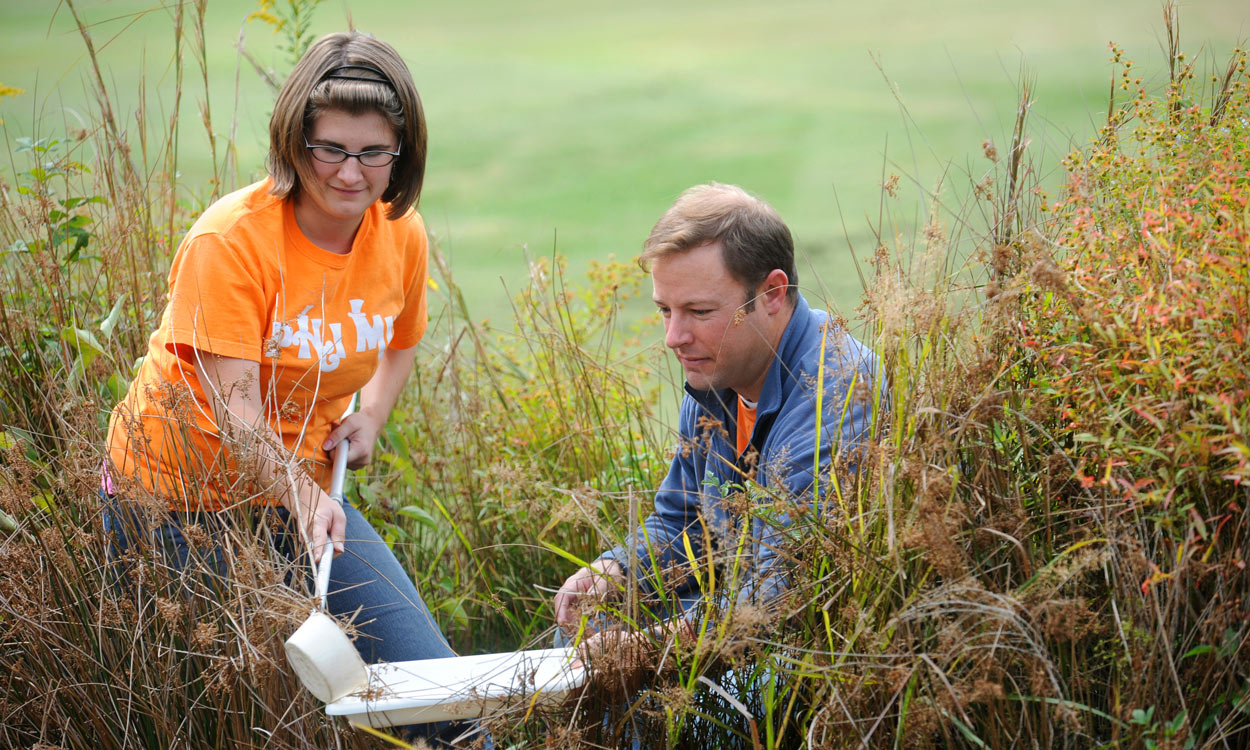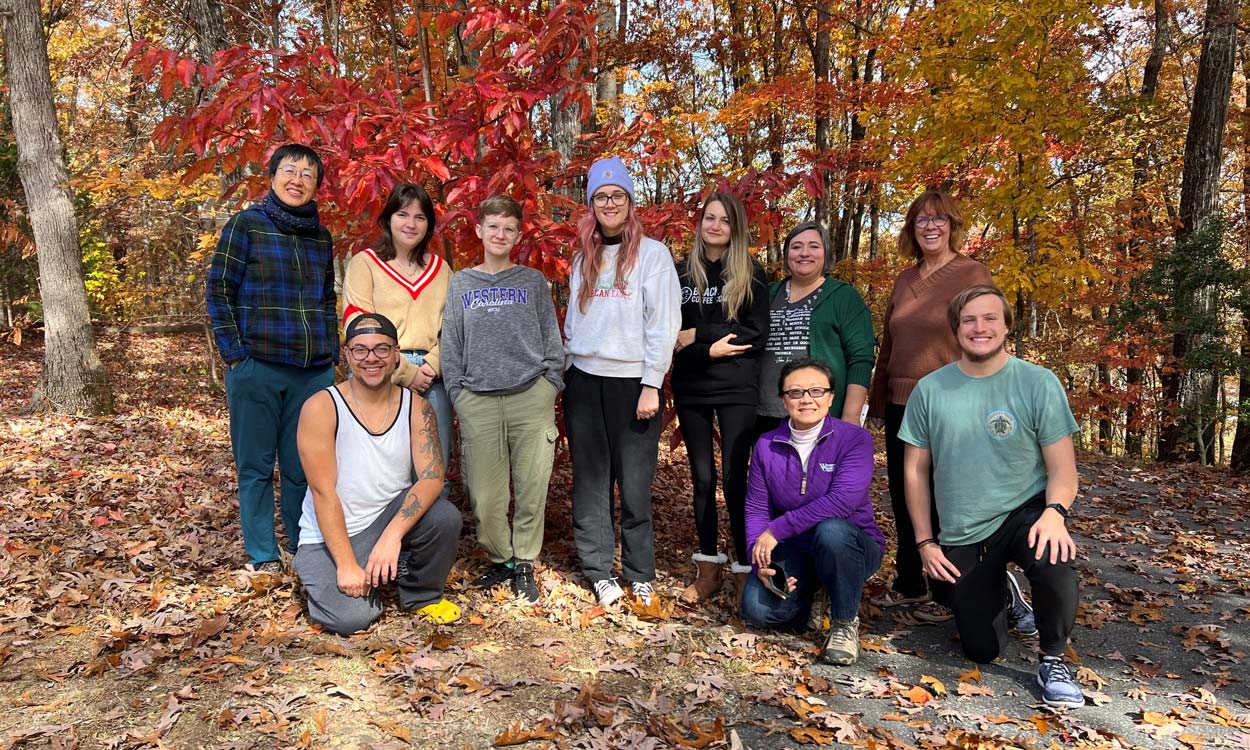WCU receives $150k award for mosquito-borne La Crosse encephalitis research
By Julia Duvall
A $150,000 grant from the University of North Carolina Collaboratory will allow Brian Byrd, professor of environmental health sciences, and his students to identify environmental and behavioral risk factors for La Crosse encephalitis in WNC.
When you get a mosquito bite, there is probably some itching and a red, swollen mark that is gone in a few days. But for some, particularly young children, a mosquito bite can be much more severe.
Mosquitoes can transmit viruses that cause several diseases including La Crosse encephalitis. Typically, La Crosse has mild or no symptoms, but when the brain starts to swell, causing encephalitis, things can take a deadly turn.
This disease is the research focus for Western Carolina University’s Brian Byrd, professor of environmental health sciences and supervisor of the Mosquito and Vector-Borne Infectious Disease Facility in the School of Health Sciences.
“This mosquito-borne disease is endemic in Western North Carolina,” said Byrd. “We have an average of 17 cases per year and 90% of these cases are in children under 16. Most of these children end up hospitalized.”
According to the Centers for Disease Control and Prevention, symptoms of La Crosse encephalitis include a fever that lasts 2-3 days, headache, nausea, vomiting, fatigue and lethargy. More severe symptoms, which are signs of encephalitis, include high fever, headache, neck stiffness, stupor, disorientation, coma, tremors, seizures, muscle weakness, vision loss, numbness and paralysis.
La Crosse encephalitis is the most common mosquito-borne disease in North Carolina and predominately affects children in WNC counties.
To support this research, the University of North Carolina Collaboratory has given WCU a three-year, $150,000 award that will allow Byrd and his students to identify environmental and behavioral risk factors for La Crosse encephalitis in WNC.
This award complements a second award given to Ross Boyce from the University of North Carolina at Chapel Hill School of Medicine, who collaborates with Byrd to address clinical findings in the children with the disease.
“My UNC colleagues will work with the hospitalized cases and determine what the lingering effects are after they’ve returned home,” Byrd said. “Our work is related, and we will go to the houses and areas where the children are getting infected and work to identify and reduce environmental risk factors.”
While most patients fully recover, children can experience long-term effects of La Crosse encephalitis. The effects are still being studied, but the most notable are cognitive disabilities and seizure disorders.
“There have also been cases where a child gets sick, then the family moves out of the house and years later a child in the new owner’s family will also get La Crosse encephalitis,” said Byrd. “This is an extremely rare occurrence, but it is happening, and we want to understand why and identify modifiable risk factors at the residence.”
The funding complements the research that Byrd and his students started on sibling La Crosse cases in 2018.
For more information about the research, contact Byrd at bdbyrd@wcu.edu. For more information about La Crosse encephalitis, visit cdc.gov/lac/.

